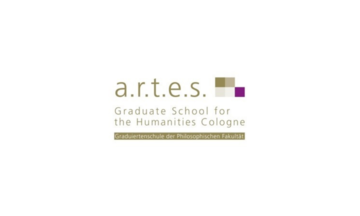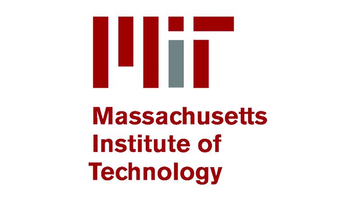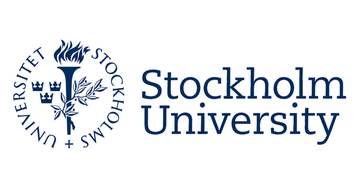Borders and Boundaries – 2025 AHRC International Conference
15–17 September 2025, The Queen's College, Oxford
For the Tenth Annual AHRC International Conference, the organising committee invited speakers from a wide range of disciplines to speak on the topic of Borders and Boundaries. Supported by the Open-Oxford-Cambridge AHRC DTP, the conference brought together graduate students from the Open University, the universities of Oxford and Cambridge, the University of Stockholm, the University of Cologne, the Australian National University, the Massachusetts Institute of Technology, the Vrije Universiteit Brussel and the University of Toronto.
The committee wishes to emphasise the friendly nature of the conference. This was a chance for speakers to gain experience communicating their research to a wider audience. The audience consisted primarily of fellow conference speakers to foster a welcoming space for early-career researchers. Beyond the stimulating academic discussions and thought-provoking presentations, we were excited to offer a dynamic program of social events designed to foster connections, encourage collaboration, and deconstruct the borders between disciplines and institutions.
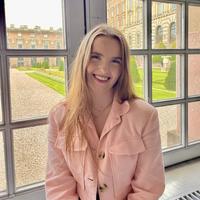
|
Emma ArthurEmma is a second year Music DPhil student at Oxford University. Her research is focused on the amateur music-making practises of women in nineteenth-century Ireland. In particular, she explores how engagement with amateur music reflected societal influences such as religion, class and other facets of identity. |

|
Apeike UmoluApeike Umolu is a historian of political thought. Her research focuses on theories of nation, state, and citizenship in the pan-African world. |
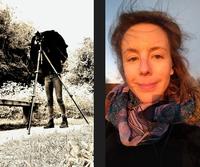
|
Fiona BrehonyFiona is a Manchester based research-practitioner working at the intersection of Geography, documentary film, sound art, and performance. Her PhD research, based in the Geography and Environmental Studies Department at The Open University, explores the socio-material history of rivers in areas of regeneration, using community engagement and documentary filmmaking practices. |

|
Anna De VivoAnna is currently a PhD student in the Faculty of English at Cambridge University. They research the intersection of visual art with poetry in the US Black Arts Movement and have particular interests in materiality, making and artist-poet collaborations. |
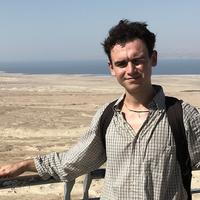
|
Andrew McNeyAndrew is studying for a DPhil in History at the University of Oxford, specialising in the rural communities of the Eastern Mediterranean during the Long Late Antiquity. He employs an interdisciplinary perspective, integrating archaeological, palaeoclimatological, papyrological and historical evidence to elucidate human-environment relationships in the past. |

|
Matilda ErikssonMatilda is a 3rd year DPhil student in history at the University of Oxford, whose research, The Private Made Public – A Connective & Comparative History of the Liebermann Villa & the Zorn House, is part of the AHRC-funded pan-European collaborative research project 'Jewish Country Houses' and the Liebermann Villa (Berlin). Matilda's research looks at building a connected life history between the Liebermann Villa (Berlin) and the Zorn House (Mora, Sweden), the individuals who lived there, and the personal and professional networks they were part of, and includes themes such as the intersection of the private and the public, art collections and collector networks, Jewish history, and historical and contemporary national narratives. |
Vida LongVida Long is a DPhil student at the University of Oxford, having gained her BA(Hons) and MA from Te Herenga Waka—Victoria University of Wellington. Her DPhil research is interdisciplinary, synthesising religious studies and postcolonial literary studies, and examines the articulation of Christianity in contemporary novels from Aotearoa New Zealand. |
|
Alexander LynchAlexander Lynch is a PhD candidate in English at Trinity College, Cambridge. His dissertation concerns ‘political miracles’ in nineteenth-century British literature and thought. His research is supported by the OOC DTP, Trinity College, and the University of Cambridge. |
|

|
Benjamin AndersonBen is a third-year PhD student and theatremaker at the University of Cambridge. His research focusses on Ormesby Hall in Middlesbrough, and left-wing theatrical activity in the North-East of England across the first half of the twentieth century. |
Our international partners for the 2025 conference include:
- a.r.t.e.s. Graduate School of Cologne University
- Australian National University
- Massachusetts Institute of Technology
- Stockholm University
- Vrije Universiteit Brussel
- University of Toronto
At once tangible and transitory, borders and boundaries shape, restrict and intersect across the spheres of human knowledge. In some basic sense, scholarship is about pushing boundaries, expanding the possibilities of what can be known. There are those borders and boundaries that we study (e.g., in works of art, in given historical or political contexts), those that striate our studies by parcelling them out into periods or disciplines, and those in whose enclosures we study (e.g., the limitations of institution or nation). It is important we recognise these boundaries so that we may work to identify opportunities and push past limitations.
For the Tenth Annual AHRC International Conference, the organising committee would like to invite speakers from a wide range of disciplines to speak on the topic of Borders and Boundaries. Supported by the Open-Oxford-Cambridge AHRC DTP, the conference will bring together graduate students from the Open University, the universities of Oxford and Cambridge, the University of Stockholm, the University of Cologne, the Australian National University, the Massachusetts Institute of Technology, the Vrije Universiteit Brussel and the University of Toronto.
Submissions might consider the borders and boundaries that separate disciplines, languages, cultures or nations from one another. We are interested in the structures, concepts and attitudes that establish these limits as well as what undoes them. Again, submissions might explore the tensions between crossing and respecting borders and boundaries. How do we 'push boundaries’ in our research and the world in which it intervenes? Should we always cross the boundaries we encounter? Finally, submissions might attend more specifically to those borders and boundaries that structure the research process. When is restricting our inquiries productive, when unhelpful?
We are accepting proposals concerning all subjects in the arts and humanities for individual 20-minute papers and for themed panels (3 x 20-minute papers). Potential topics and approaches include:
- Literal and metaphorical boundaries and borders in our world, their origins and their features
- Representations of borders and boundaries in literature, art and music
- Spatial and temporal characteristics of borders and boundaries
- Definitions of borders and boundaries in different discourses (e.g., theories, disciplines, cultures)
- Different ways of crossing borders and boundaries (e.g., translation, interdisciplinarity)
- The impact of borders and boundaries on the selection, collection and analysis of evidence as well as other aspects of the research process
- Institutional, methodological and theoretical borders and boundaries between and within disciplines
- The borders and boundaries of the humanities and of academe
The committee wishes to emphasise the friendly nature of the conference. This is a chance for speakers to gain experience communicating their research to a wider audience. The audience will consist primarily of fellow conference speakers to foster a welcoming space for early-career researchers. Beyond the stimulating academic discussions and thought-provoking presentations, we are excited to offer a dynamic program of social events designed to foster connections, encourage collaboration, and deconstruct the borders between disciplines and institutions.
We would particularly encourage submissions from speakers with limited conference experience. We will be holding an online information session before the submission deadline to support speakers with limited experience as they prepare their abstracts and to demystify the submission process more broadly. If you would like to attend this session, please complete this online form. We will follow up with more information on dates, times and format soon.
Submissions
The deadline for submissions to this conference is midday, 12:00 GMT, on Wednesday 7th May 2025. To submit proposals please complete this online form.
Please note: if you are a student from one of our International Partner universities, we ask that you please submit your proposal via your university, and do not complete the above online form. Thank you.
Eligibility
This opportunity is open to OOC DTP doctoral researchers of all subjects from the Open University and the universities of Oxford and Cambridge. Applicants from the international partner institutions named above are welcome to get in contact with their universities about the internal application process.
Students who are not registered at Oxford will be offered accommodation and support for travel expenses if selected to speak at the conference.
Please direct any questions to training@oocdtp.ac.uk.
The first five Cambridge AHRC International Conferences were organised and supported by the Cambridge AHRC DTP. Conference themes included: Trust and Truth (2019), Space and Surface (2018), Tradition and Transformation (2017), Time and Temporality (2016). You can find out more about these past conferences here: https://cambridgeahrcdtpconferences.co.uk/.
The subsequent four conferences, Across Distance (2021), Hybridity (2022), Entanglements (2023), and Constellations (2024) were organised by a committee of students from the OU, Oxford, and Cambridge, with support from the Open-Oxford-Cambridge AHRC DTP.
Contact
If you have any questions, please write to training@oocdtp.ac.uk

